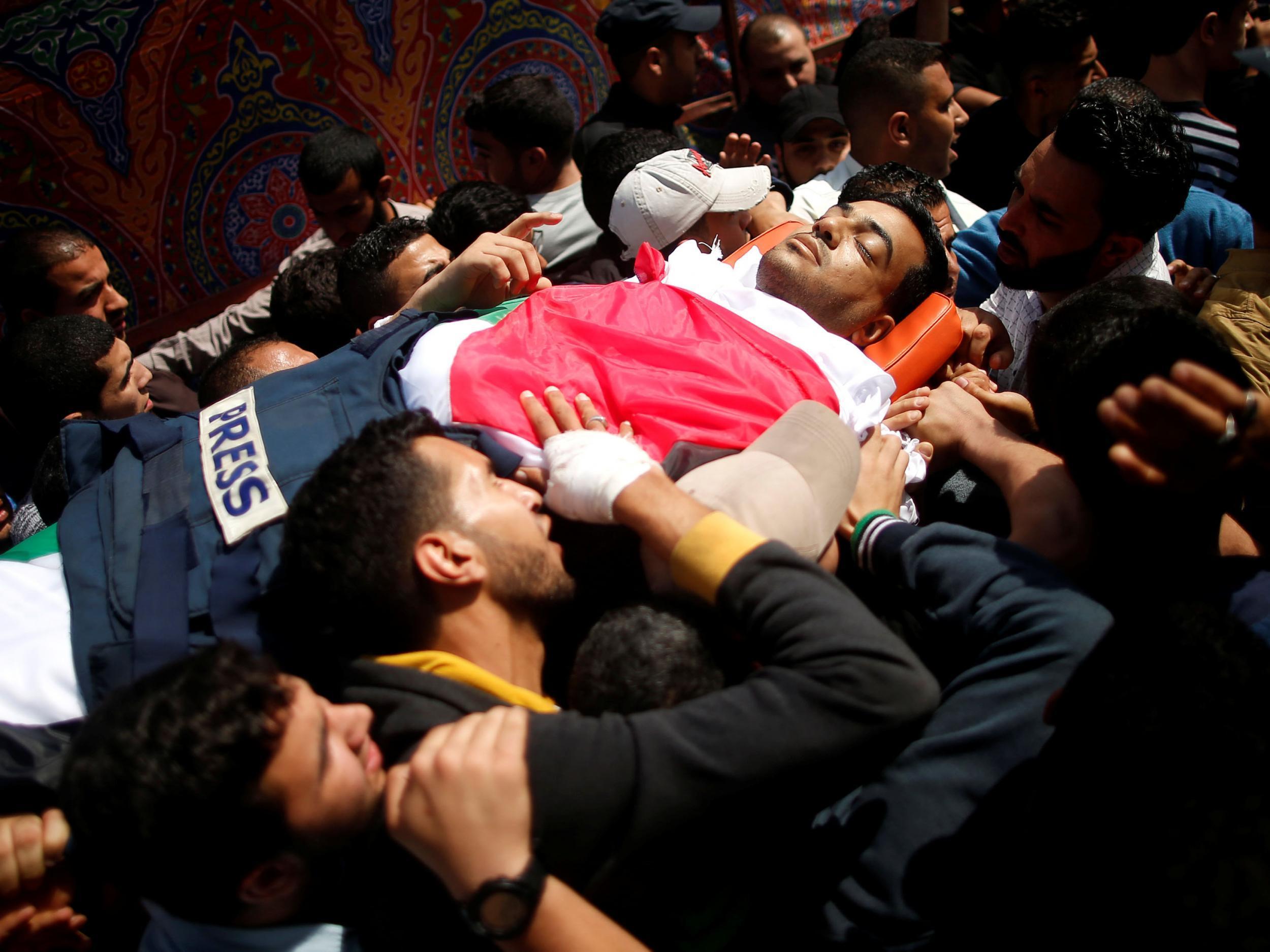Your support helps us to tell the story
From reproductive rights to climate change to Big Tech, The Independent is on the ground when the story is developing. Whether it's investigating the financials of Elon Musk's pro-Trump PAC or producing our latest documentary, 'The A Word', which shines a light on the American women fighting for reproductive rights, we know how important it is to parse out the facts from the messaging.
At such a critical moment in US history, we need reporters on the ground. Your donation allows us to keep sending journalists to speak to both sides of the story.
The Independent is trusted by Americans across the entire political spectrum. And unlike many other quality news outlets, we choose not to lock Americans out of our reporting and analysis with paywalls. We believe quality journalism should be available to everyone, paid for by those who can afford it.
Your support makes all the difference.At least nine Palestinians have been killed by Israeli forces as they protested along Gaza’s sealed border with Israel, Palestinian health officials said.
Another 491 were injured, 33 of them seriously, after they were fired on from across the Israeli border, they added.
Well-known Palestinian journalist Yasser Murtaja was among the dead. He died from a gunshot wound sustained while filming in the area.
He was more than 100 metres from the border, wearing a flak jacket marked “press” and holding his camera when he was shot in an exposed area just below the armpit.
Others were also hit by bullets while some suffered less serious injuries like tear gas inhalation, the officials said.
The area was surrounded in black smoke from burning tyres as Palestinians attempted to block the view of Israeli snipers.
The Israeli military said it fired only at “instigators” involved in attacks on soldiers. It said it was investigating the circumstances of Mr Murtaja’s death.
Hundreds of mourners, including Hamas chief Ismail Haniyeh, attended yesterday’s funeral in Gaza City.
Murtaja was the co-founder of Ain media, a local television production company that carried out projects, including aerial drone video, for media clients including the BBC and Al Jazeera English. He was not affiliated with Hamas or any other militant group.
At least 31 Palestinians have been killed by Israeli fire since last week. Rights groups have criticised the killings and called Israel’s open-fire orders on the border as unlawful.
Israel’s defence minister Avigdor Lieberman warned that those approaching the fence were risking their lives.
But the United Nations (UN) human rights office said on Friday that it has indications that Israeli forces used “excessive force” against protesters last week, when 15 Palestinians were killed.
An Israeli military spokesman defended the rules of engagement.
“If they are actively attacking the fence, if they are throwing a molotov cocktail that is within striking distance of Israeli troops or similar activities, then those persons, those rioters, become, may become, a target,” said Lieutenant Colonel Jonathan Conricus.

Hamas has called for a series of protests until 15 May, the anniversary of Israel’s founding when Palestinians commemorate their mass uprooting during the 1948 war over the country’s creation.
Israel has alleged that Hamas is using the mass marches as a cover for attacking the border fence and has vowed to prevent a breach at all costs.
The military said protesters hurled several explosive devices and firebombs, using the thick plumes of smoke from burning tyres as a cover, and that several attempts to cross the fence were thwarted.
Gaza’s Hamas strongman, Yehiyeh Sinwar, told a cheering crowd in one of the protest camps that a border breach is coming.
The world should “wait for our great move, when we penetrate the borders and pray at Al-Aqsa,” Mr Sinwar said, referring to the major Muslim shrine in Jerusalem.
He was interrupted several times by the crowd, who chanted, “We are going to Jerusalem, millions of martyrs!” and “God bless you Sinwar!”
The mass protests are perhaps Hamas’s last chance to break a border blockade enforced by Israel and Egypt since 2007, without having to succumb to demands that it disarm.
The blockade has made it increasingly difficult for Hamas to govern. It has also devastated Gaza’s economy, made it virtually impossible for people to enter and exit the territory, and left residents with just a few hours of electricity a day.
Israel argues that Hamas could have ended the suffering of Gaza’s two million people by disarming and renouncing violence.
Agencies contributed to this report

Join our commenting forum
Join thought-provoking conversations, follow other Independent readers and see their replies
Comments